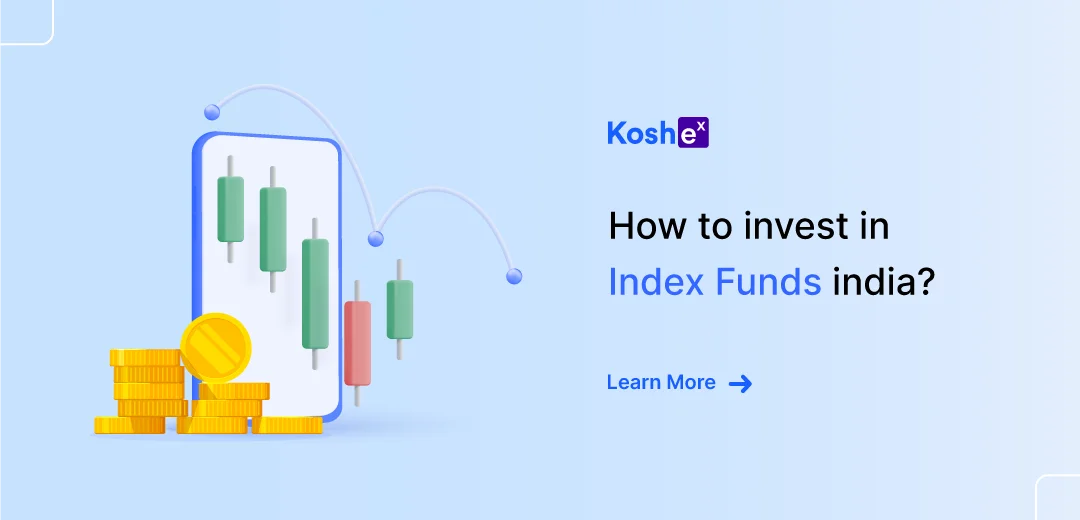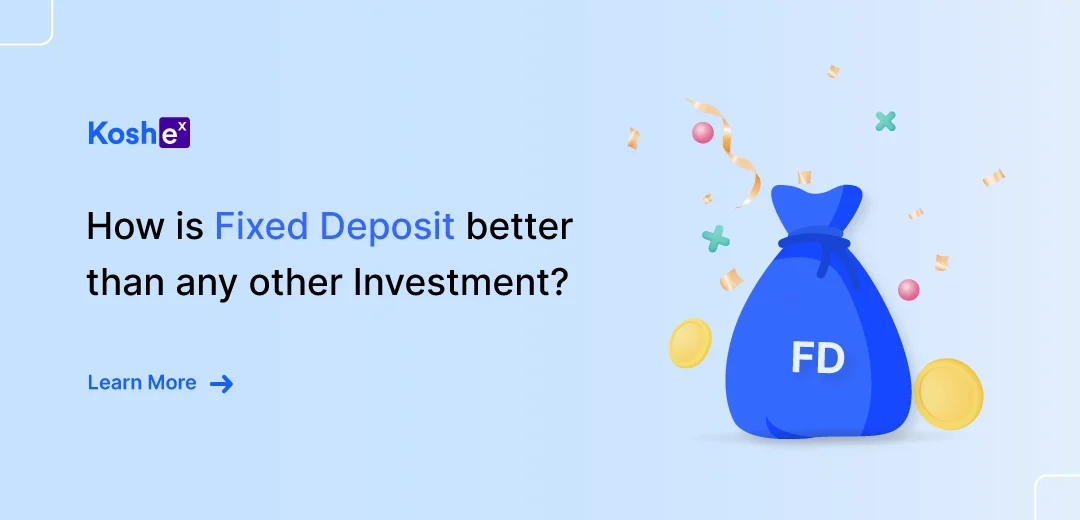Introduction
Different types of mutual funds in India cater to varied investment needs. You can pick equity if you wish to earn higher returns and don’t mind the associated volatility.
Alternatively, debt funds offer stable returns without volatility risks. Even equity and debt funds are further subdivided into different categories. Index funds are a type of equity fund that invests in securities of a particular index. Let’s explore the benefits of investing in index funds.
What is an Index Fund?
Index funds are mutual funds that replicate the performance of the index that they are based on. Under index funds, fund managers select a particular index and then invest in the same securities within the selected index.
For instance, in Nifty50 index funds, the fund manager simply invests in the portfolio in the securities in the Nifty 50 index, that too in the same proportion.
Index funds are passively managed because fund managers do not actively buy or sell securities. They simply purchase the securities of the underlying index and aim to mirror index returns. If there’s a change in the underlying index, the fund manager simply makes the same change to the portfolio to remain similar to the selected index.
The Performance Objective of an Index Fund
The objective of an index fund is to match the index returns with the possibility of a tracking error. It allows you to invest in a diversified basket of securities of a particular index in a cost-effective manner.
The fund management style is passive, to mirror the index, rather than actively trying to churn the underlying portfolio.
How do Index Funds Work?
Investors invest in Index funds, and their investment collects into a pooled corpus. The fund manager first selects a particular index and then invests the portfolio in identical securities and in the same proportion as the selected index.
For example, a Sensex 30 index will simply invest in the Sensex 30 stocks in the same proportions as the index itself.
After that, the portfolio mirrors the selected index’s performance. If the underlying index grows, so does the portfolio and vice-versa.
There may be small differences between the returns of the index fund and the selected index. This is known as a tracking error. The fund manager tries to minimise the tracking error. Moreover, the manager rebalances the index fund portfolio when the benchmark index is realigned.
Features of Index Funds in India
- Index funds can invest in stocks, bonds or commodities as the underlying security for the index. Mutual fund schemes could even have a balanced advantage index fund which has equity and bond components.
- They try to match the performance of the benchmark index. As such, they also mirror the underlying index risks.
- The expense ratio of index mutual funds is very low as active monitoring is not required.
- The annual management fees are also low since the fund does not involve active management.
- There may be slight differences between the performance of the index mutual fund and the underlying benchmark index. This difference is called the tracking error.
Benefits of Investing in an Index Mutual Fund
- An index mutual fund has a low expense ratio. As a result, you can enjoy the returns of a particular index without incurring a high cost.
- Fund managers find it easy to manage such funds. They simply replicate the index components in the fund, thus keeping the fund expense ratios low.
- Since the index mutual fund replicates the index, it is diversified across a universe of stocks and other securities.
- While index funds are not devoid of risks, the diversified portfolio helps minimize this risk.
- Index funds attract equity taxation. As such, you can earn tax-efficient returns on your investment.
How to invest in index funds?
If you are looking to invest in index funds, here are the ways in which you can do so –
- Through the AMCMutual fund houses, or Asset Management Companies as they are technically called, allow you to invest in their index funds directly from their websites, mobile applications, or offices. You can, thus, choose an AMC’s index fund and invest in it directly.
- Direct funds involve a lower expense ratio compared to regular funds giving you the benefit of higher returns.
- Through a broker you can invest in an index fund through mutual fund brokers too. Such brokers represent multiple AMCs and allow you to pick a fund that offers better returns than others.
- Through an online platform There are many online platforms that facilitate mutual fund transactions in the simplest of ways. You can visit these platforms, compare the performance of different index funds and then pick the right fund that aligns with your investment strategy. Koshex is a leading platform that allows you to invest in index funds with a few simple clicks.
- Through a mobile app AMCs and other financial institutions have developed mobile applications through which you can invest in index funds using your Smartphone. Just download the app, register on it and start investing. It’s that simple.
Taxation of Index Funds
While index funds can help you earn tax-efficient returns, you should know the tax implication of the returns that you earn. So, here goes –
- If you redeem your investment within 12 months, the returns earned are called short-term capital gains. Such gains are taxed at 15%.
- If you redeem your investment after 12 months, the returns are called long-term capital gains. Such gains are tax-free up to Rs.1 lakh. If the returns exceed Rs.1 lakh, tax is levied at 10% only on the excess return. For instance, if the return is Rs.2 lakhs, Rs.1 lakh will be exempted from tax, and you will have to pay a 10% tax on the excess Rs.1 lakh.
Conclusion
Index mutual funds are an example of the passive investing style. You get the benefit of investing in a diversified portfolio of high-performing indices at low costs. Moreover, since index funds are managed by professionals, the portfolio is realigned if the index composition changes.
You can choose from different types of index funds to suit your risk profile. Portfolio diversification across a broad universe of securities mitigates investment risks and market volatility.
The investment process is simple, as you can invest online or offline through multiple modes. So, if you are looking for the benefits of high returns, low investment risks and low expense ratios, investing in index funds can be the right choice.
FAQs
1) What happens to dividends received in Index Funds?
A) They are reinvested in the index constituents again.
2) Which investment style do index funds follow?
A) Index funds follow the passive investment style.
Neuokosh Capital Private Limited is an online one-stop solution for investments in mutual funds, smart deposits and digital gold. For those interested in index mutual funds, Koshex is an excellent platform. So, visit Koshex today and start your investing journey.









Leave a Comment